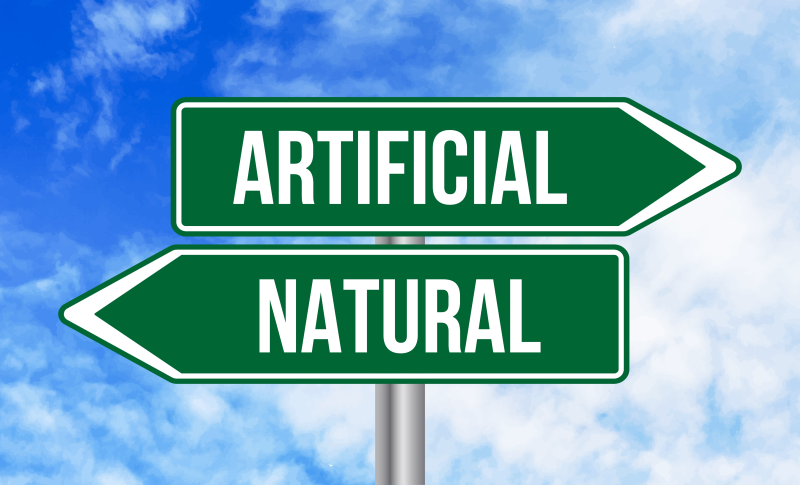A good night’s sleep is crucial for overall health and well-being. However, many struggle with getting restful sleep. This often leads people to explore various sleep aids, with tryptophan and melatonin emerging as popular choices. Understanding the distinctions between tryptophan vs melatonin can help you make a more informed choice for your specific sleep challenges. This includes how each one may impact your sleep onset, or the time it takes to fall asleep.
Tryptophan vs Melatonin: What’s the Difference?
To begin, let’s discuss their individual roles in the body.
What is Tryptophan?
Tryptophanis an essential amino acid. Our bodies need it but can’t produce it – so we must obtain it through our diets. Foods rich in tryptophan include poultry, dairy products, nuts, and seeds. Tryptophan plays a crucial role in producing serotonin, a neurotransmitter vital for mood regulation, appetite, and sleep. Because of its relationship to serotonin, tryptophan can impact your sleep duration, or how long you stay asleep, and even potentially increase serotonin levels.
What is Melatonin?
Melatonin, often referred to as the “sleep hormone,” is naturally produced in the brain’s pineal gland. It plays a central role in regulating your sleep-wake cycles (circadian rhythm).
Your melatonin levels typically rise in the evening, signaling your body that it’s time to sleep. These levels naturally decline in the morning, signaling wakefulness.
Having balanced melatonin levels and a healthy circadian rhythm can have a positive effect on your body temperature, which also plays a role in sleep regulation.

How Tryptophan vs Melatonin Affect Sleep
Tryptophan and Sleep:
Once consumed, tryptophan gets converted to 5-HTP (5-hydroxytryptophan), which the brain further converts into serotonin. Serotonin influences mood and sleep. Some serotonin then converts to melatonin. However, this conversion relies on various factors, including adequate light exposure, tryptophan levels, and the presence of other essential nutrients. How tryptophan affects you may also be dependent upon your body weight.
Melatonin and Sleep:
Melatonin works by directly binding to receptors in the brain that control your sleep-wake cycle, promoting relaxation and drowsiness, essentially preparing your body for a restful night’s sleep. In addition to its role in sleep onset latency, melatonin is also thought to impact eye movement during sleep.
Choosing Between Tryptophan vs Melatonin: Factors to Consider
Deciding between tryptophan vs melatonin involves considering your unique circumstances and health goals. Consulting a healthcare provider is always best to determine the safest and most appropriate option. Here are some things to think about: Unlike melatonin supplements, foods that help you sleep by boosting tryptophan can offer a more sustainable, diet-based solution.
Reasons for Sleep Problems
For occasional sleep difficulties or trouble adjusting to new sleep schedules (like jet lag), melatonin might offer quicker relief, directly promoting sleep. But if underlying mood disorders or chronic sleep disturbances are contributing to your sleeplessness, then increasing dietary tryptophan intake through dietary changes or supplementation might be more beneficial. If you suspect a mood disorder is impacting your sleep, talk to your doctor about how serotonin levels might be playing a role.
Individual Sensitivities and Potential Side Effects
It is crucial to start with a low dose of either supplement to assess your body’s response. Some may experience headaches, dizziness, or vivid dreams, although those are not very common with either.
Tryptophan vs Melatonin: FAQs
While we’ve touched upon the key differences, let’s delve into some frequently asked questions concerning tryptophan vs melatonin.
Can Tryptophan or Melatonin Be Used Long-Term?
Both should be used cautiously for prolonged periods. Continued melatonin use can sometimes lead to dependency, reducing your body’s natural melatonin production.
Tryptophan, while generally considered safer, might interact with certain medications, especially antidepressants.
Consult with your doctor or psychiatrist for personalized advice if you have concerns.
This is especially important if you have any preexisting health conditions or are taking medications that could potentially lead to sleep problems if combined with tryptophan.

Are There Any Natural Ways to Boost Melatonin Production?
Yes. Establish a consistent sleep schedule – go to bed and wake up at roughly the same time daily to regulate your circadian rhythm. Darkness promotes melatonin release, so dimming the lights as bedtime nears can make a difference. Limiting your exposure to blue light from electronic devices in the evening can also encourage the production of nocturnal melatonin.
Understanding the Role of Diet in Sleep Quality
When comparing tryptophan and melatonin for sleep improvement, it’s important to consider how your diet can impact their effectiveness. Tryptophan, an amino acid, is a precursor to serotonin, which then converts into melatonin, the hormone responsible for regulating sleep. Both play crucial roles in promoting restful sleep, but ensuring your diet supports their production is key. For those on a ketogenic diet, being aware of keto fruits to avoid is important, as high-carb fruits can affect insulin levels and potentially interfere with tryptophan metabolism. Balancing your diet with foods that support both tryptophan and melatonin production, while staying within the guidelines of a keto plan, can help improve your overall sleep quality and promote a healthier sleep cycle.
Conclusion
Deciphering the roles of tryptophan vs melatonin offers valuable insights into promoting healthier sleep patterns. Remember that addressing underlying issues contributing to sleep disturbances is always crucial. While melatonin might provide quicker relief for some, those grappling with mood-related sleep challenges might benefit from increasing tryptophan through diet or targeted supplementation. Understanding the relationship between tryptophan, melatonin, and the complex sleep processes within our bodies can help you make informed decisions about improving sleep.








